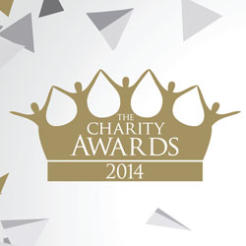With the entry deadline for this year's Charity Awards fast approaching, Andrew Hind wonders who could have won a Nobel prize for charity.
2014 is the 50th anniversary of Martin Luther King winning the Nobel Peace Prize.
In his 1964 acceptance speech he spoke, with as much passion as any man has ever mustered, about the “22 million negroes of the United States of America engaged in a battle to end the long night of racial injustice”.
The applause still rings down the years in response to his cry: “I still believe that we shall overcome.”
Who knows how much inspiration the 49 subsequent winners of the peace prize over the following half a century drew from his example?
Two of those winners were certainly among the greatest civil society leaders the world has ever seen – in 1979 Mother Teresa was awarded the prize for her humanitarian work in India, and in 1993 Nelson Mandela was honoured for his pre-eminent role in the peaceful termination of the apartheid regime, and for laying the foundations for a new democratic South Africa.
Mandela shared the prize with the man who had released him, President Frederik Willem de Klerk, because they had agreed on a peaceful transition to majority rule.
And across the other Nobel disciplines of chemistry, medicine, physics and literature, the prizes have inspired successive generations to think big, challenge orthodoxies and make an indelible imprint on man’s history.
Thinking of Martin Luther King made me wonder – who would win the Nobel Charity Prize, if there was such a thing?
And what might the charity equivalent be of Francis Crick and James Watson, together with Maurice Wilkins, winning the 1962 Nobel Prize in Medicine for their discovery of the structure of DNA – one of the most significant scientific discoveries of the 20th century?
Well, down the years you could have made a good argument for Cecil Jackson-Cole, the remarkable social pioneer who founded ActionAid, Help the Aged and Oxfam, using funds generated by his estate agent business.
In the late 1940s, at Oxfam, he financed the first person ever employed to lead fundraising and marketing in a charity. Today we call it venture philanthropy – a social revolution not invented in California, but right here in Britain.
Perhaps Fergus Falk, the former partner in accountancy firm Touche Ross (now part of Deloitte), would have been recognised for his work chairing the committee that produced the first Sorp in 1988.
Or what about Zarine Kharas and Anne-Marie Huby, the founders of JustGiving in 2001? Yes, it’s a for-profit company, but it has helped individuals raise some £1.5bn for charity in a little over a decade.
And what sort of groundbreaking new initiative might be suitable as a potential Nobel Charity Prize winner in the future?
Our own Crick and Watson
Surveying the charity sector in 2014, I think the most important discovery that lies ahead of us is working out how to map and communicate a charity’s delivery of value for money: it’s a combination of impact, fully-absorbed cost allocation and timely delivery.
If we could crack that challenge it would be the charity equivalent of Crick and Watson discovering DNA, and would unlock our the ability to map the ‘charity genome’.
We could truly map the effectiveness of the charity ecosystem if we could properly assess the health of all its constituent parts. If you like the idea of Nobel prizes for charity, you’ll be pleased to know that their equivalent actually already exists.
They are called The Charity Awards. But you had better submit your entry quickly to charityawards.co.uk; this year’s Awards nominations close on 7 March.
Even Martin Luther King couldn’t fail to be impressed.
Andrew Hind is editor of Charity Finance.









